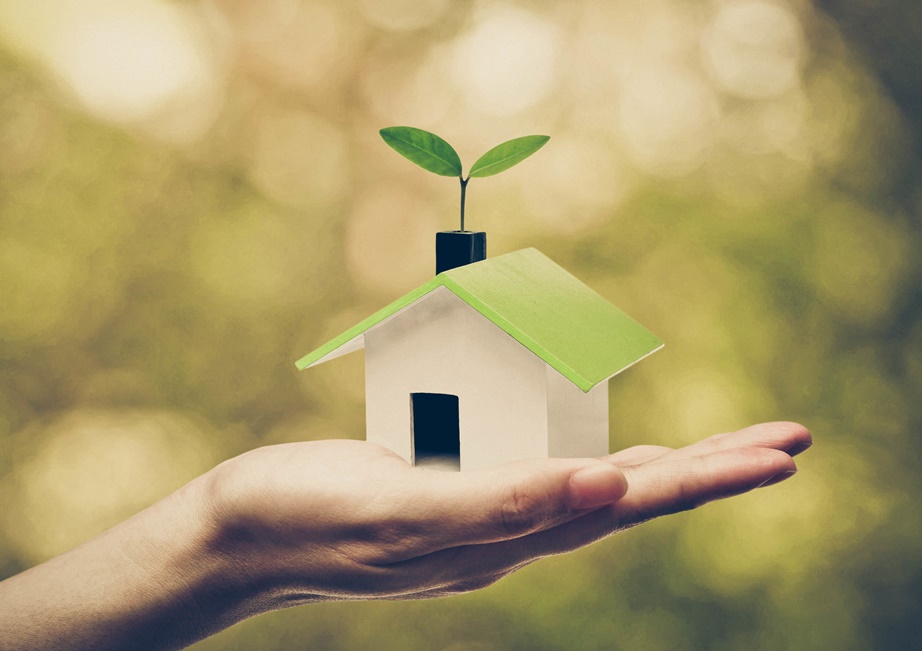Buildings account for 39 percent of total energy use in the US. This includes 68 percent of the country’s total electricity consumption.
Commercial and residential buildings are also responsible for 11 percent of greenhouse gas emissions. This shows how much of an impact the built environment has on our natural surroundings, as well as on human health and the economy.
We can reap the biggest benefits by integrating green construction methods into new building projects. But we can also maximize the economic and environmental performance of existing residences by converting them into energy efficient homes through renovation and reconstruction.
Read on to learn more about the benefits of eco-friendly home, and how to make your home more energy efficient.
Table of Contents
Save Energy and Conserve Natural Resources
Taking steps to consume less power can be as simple as washing clothes in cold water and switching off lights at night.
These small changes help to save energy and conserve the natural resources used to provide that energy. In turn, reduced demand for energy results in reduced demand for harvesting fossil fuels. This means there will be less of a need to use trees, natural gas, coal, and other finite resources power our homes.
And, switching to efficient light bulbs or rechargeable batteries means that we need to buy fewer batteries and bulbs for our homes. As a result, there is a reduced need to mine toxic materials like mercury and less waste.
The next level would then be to switch to renewable energy sources, such as solar energy. A portable solar panel, which you can find more details about here, produces around 13.52 amps per hour of full sunlight. As such, solar panels on your home could make a huge impact on your energy consumption.
Decrease Pollution
Power plants generate the electricity we use in our homes every day by burning crude oil, coal and other fossil fuels.
While this method of generating energy is somewhat inexpensive, our planet is paying a high price. Traditional power generation releases carbon dioxide, nitrogen oxides, and sulfur into the atmosphere.
When we hear about ‘greenhouse gases’, carbon dioxide is the main culprit, accounting for the majority of airborne pollution. As power plants burn more fuel to keep up with our energy demands, extra carbon waste traps too much heat in the atmosphere. This then leads to rising temperatures, abnormal weather patterns and more natural disasters.
But how we as individuals can help fight this worldwide phenomenon? The good news is that even small changes can have a huge impact. If every American household switched just one regular light bulb to a compact fluorescent light (CFL), the reduction in greenhouse gases would be equal to taking 1.3 million cars off the road.
Save Money
We’ve seen that learning how to make your home more energy efficient can help the environment. Now it’s time to consider how it can help you.
Lower energy bills are an immediate benefit of conserving energy within your home. Considering the average American spends $2,200 on energy per year, this could add up to hundreds of dollars of savings.
The small changes you can adopt around your home can also make huge dents in your energy bills. These changes include buying energy-efficient appliances and swapping regular bulbs for LED bulbs or CFLs.
While LED bulbs are more expensive than regular light bulbs, by switching your home’s regular bulbs to LED bulbs, current estimates show you could save $3,260 over the 23-year lifespan of an LED bulb. Even switching the four most used bulbs in your home could save as much as $44 a year. And that’s assuming energy prices don’t rise, which they no doubt will!
As such, it’s wise to consider how much spending what seems like a large outlay can mean big savings over time. It’s true that improving energy efficient homes with energy efficient windows, solar panels or a high-efficiency furnace can be expensive changes. But the long-term savings far outweigh the initial cost.
Boost the Value of Your Home
Investing in significant changes to make your home more energy efficient also has extra financial benefits beyond savings on your energy bills. These upgrades also boost the resale value of your home by a significant amount.
If you plan on selling your home in the future, you’ll find it easy to attract potential buyers who want to save money on energy bills too. And, as more and more people become aware of the benefits of energy efficient homes, this demand will only increase.
More Comfortable
By improving energy efficient homes to make them better for the environment and for your wallet, we also make them more comfortable to live in.
Improved insulation and energy efficient windows prevent heat from escaping in winter and entering in summer. This results in a more pleasant indoor temperature all year round and less reliance on cooling and heating systems.
By relying less on air conditioning units and heating systems you’ll also reduce your exposure to bacteria and germs. As a result, you’ll experience less sickness and better quality of life. And, good insulation also offers added security and soundproofing, cutting down on noise pollution.
The Benefits of Energy Efficient Homes
It’s clear to see that energy efficient homes are the future. Not only is taking steps to use less energy within our homes beneficial for the environment, but it also saves us money and makes our homes more comfortable.
With this kind of win-win situation for everyone on the planet, isn’t it time you started to make a change? To get you started, check out these simple ways to make your home more energy efficient!


















